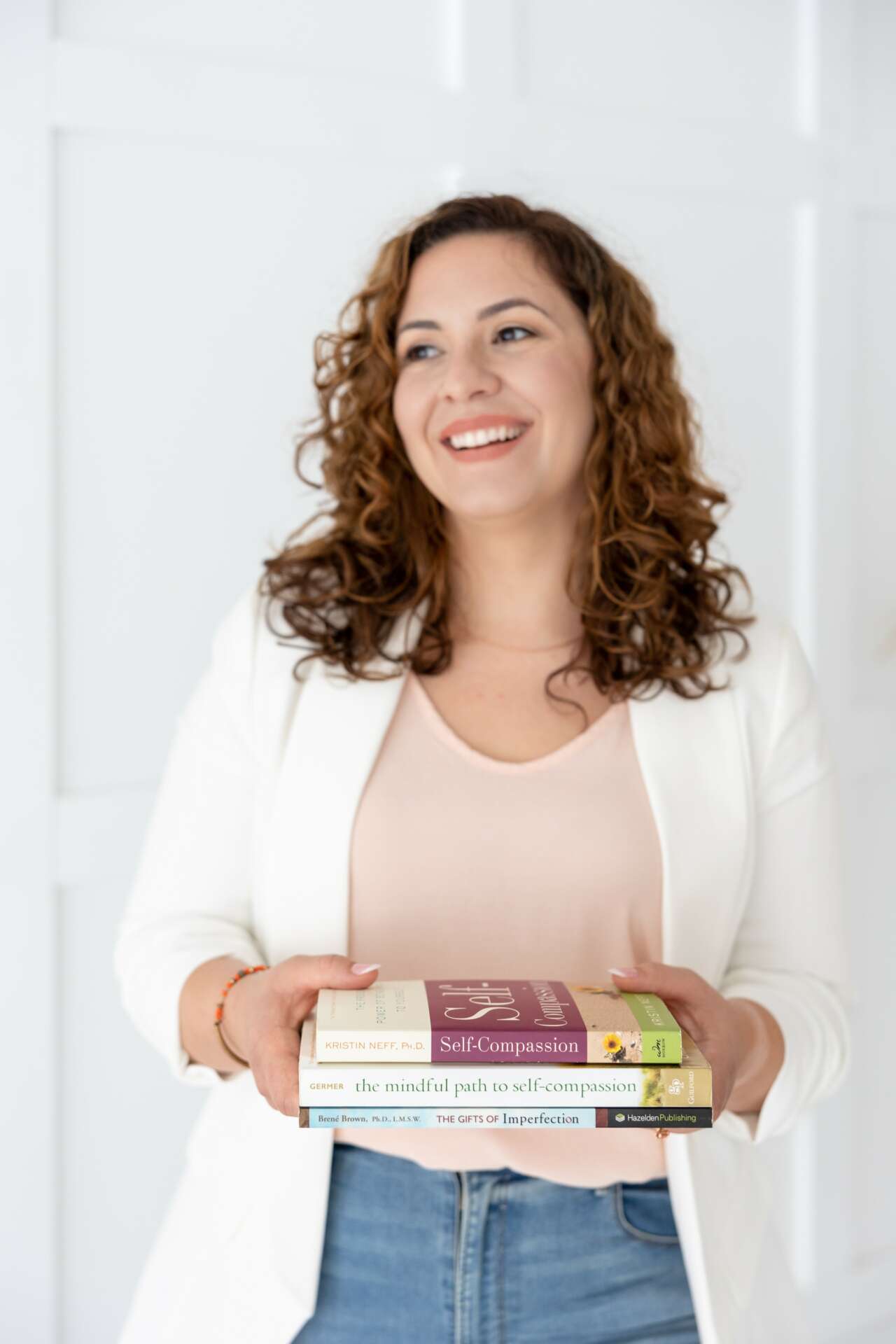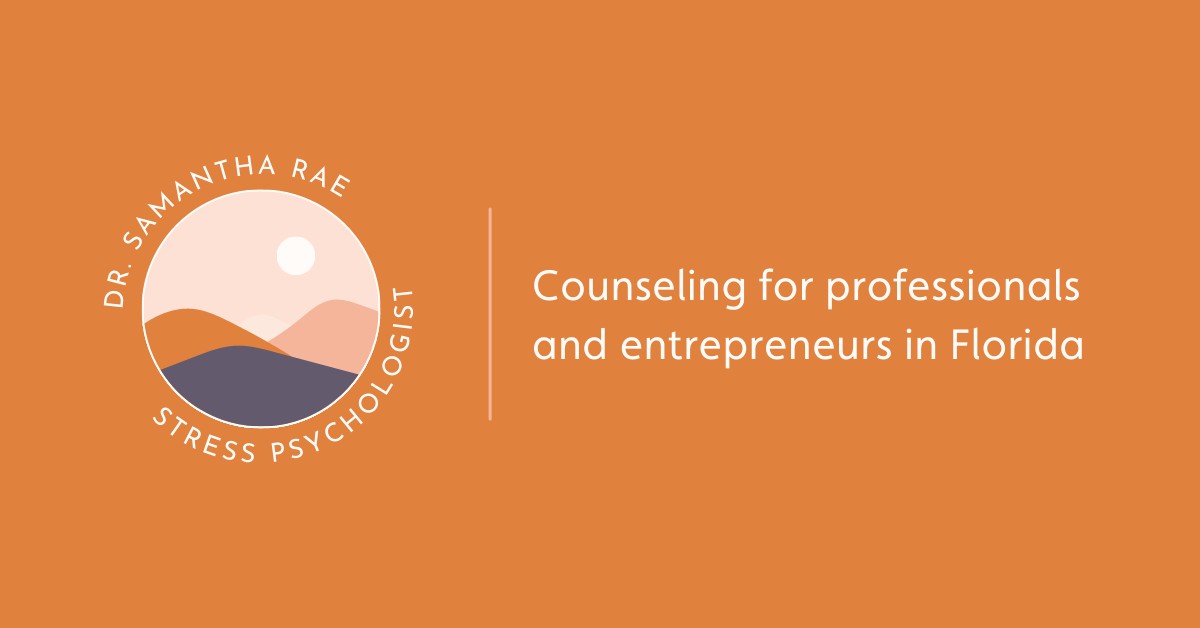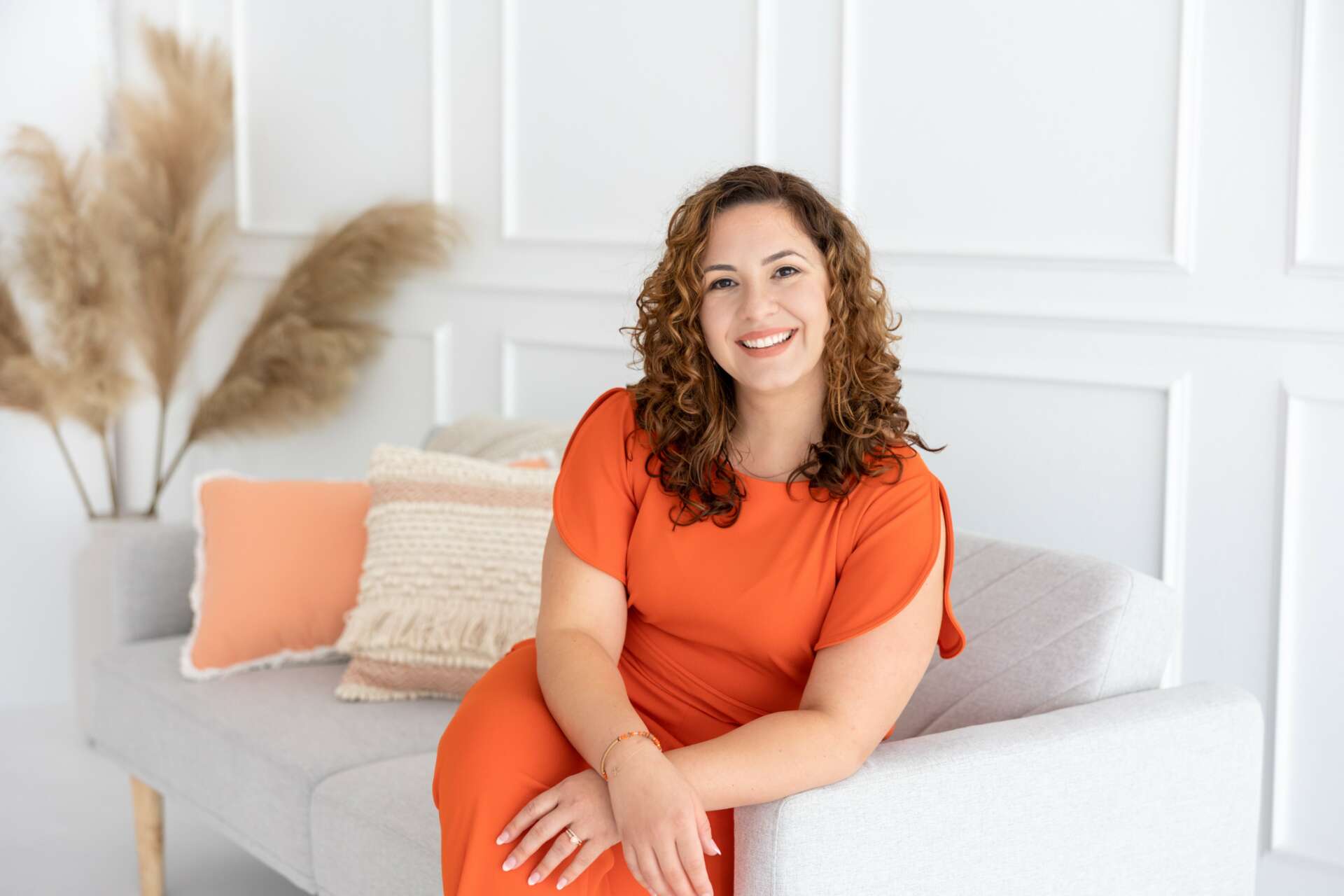We’re excited to introduce you to the always interesting and insightful Dr. Samantha Sciarrillo. We hope you’ll enjoy our conversation with Samantha below.
Alright, Dr. Samantha thanks for taking the time to share your stories and insights with us today. Was there an experience or lesson you learned at a previous job that’s benefited your career afterwards?
A toxic workplace taught me, a recovering people pleaser and high-achiever, the importance of listening to my body. About six months into my new job, I began to notice signs of an unhealthy workplace- artificial power imbalances, micromanaging, secrecy, and leading with fear. People spoke up about their concerns, but employees’ experiences were minimized and focus was placed on the needs of “the system” above all else.
There was a lot of similarity between this workplace and the characteristics of an abusive relationship. But even as a trained psychologist, I overlooked the warning signs for months, and blamed myself instead. This was my “dream job,” so it must just be in my head! “Maybe I’m the problem,” I thought. I can’t just leave, I need the money. What would I do next, anyway?
I ignored all of my body’s signals until they were so loud they couldn’t be ignored. We think of stress as a mental thing, but actually, stress is stored in your body. Months of my body’s fight or flight system being on overdrive finally resulted in full-on burnout. I was emotionally exhausted, riddled with self-doubt & low confidence, and consumed by dread before each work day. I had no energy for cooking, exercising, or quality time with my partner in the evenings. Weekends offered little respite, and flew by.
I don’t remember my exact breaking point, but I knew for a while that it was time to go. When I submitted my resignation, almost two years had passed from my start date. (It took almost as long to heal my body from the symptoms of burnout). It was a bumpy road figuring out my next steps, but I have never once regretted the decision to leave.
It turns out our bodies contain infinite wisdom, but we must choose to listen. I don’t blame myself for the time I spent ignoring my needs because that’s what society teaches us to do. Grad school made it abundantly clear that work should come first, self-care later. Well, I disagree. I will be listening to my body from here on out.
Awesome – so before we get into the rest of our questions, can you briefly introduce yourself to our readers.
I’m a licensed psychologist and private practice owner in Orlando, Florida. I decided to become a psychologist in junior high. I felt a natural inclination toward helping people. I observed a lot of mental suffering growing up, and basically, I wanted to help unhappy people feel happy again, so they could live a good and meaningful life. As a clinical psychologist, I am trained to look for the why behind people’s behavior so I can help them overcome struggles and find a path toward healing and thriving.
I started out working with people living in poverty and suffering from severe mental illness. The work was meaningful, but it felt like a band aid. It was painful to witness suffering while feeling helpless to change the bigger, systemic issues setting people up for failure.
When I began working with college students, I understood on a personal level the problems affecting their mental health and keeping them from reaching their goals. I realized that intelligence and success do not preclude you from suffering. In fact, certain aspects of being a high achiever make disappointment almost certain.
I became an accidental entrepreneur along the way. Private practice was never my dream or goal. I was “supposed” to work my way up in higher education to a leadership role where I could influence decision-making. But again, toxic systems stopped me in my tracks. I left my 9-5 job in 2019 because I was totally burned out and running on fumes.
I can’t believe I never learned about burnout in all of my years of education, especially since burnout rates are high among students and helping professionals. After I left my job, I found myself seeking education on this topic from a trusted source, Google. I also read books and listened to podcasts. It turns out, burnout wasn’t all my fault and it’s definitely preventable. After taking a break to focus on my own mental health and healing, it became my mission to help other high achievers who struggle with stress/burnout, anxiety, and self-esteem.
In my practice, I offer individual therapy online. I work with professionals and entrepreneurs, and the occasional ambitious college student, to learn skills to manage stress and anxiety, and strengthen confidence, so they can reach their personal and professional goals. Basically, I help low-key anxious people reach their big dreams without burning out.
I bring myself 100% to my therapy work. Talking to me doesn’t feel bland or sterile like a doctor’s office. I’ve dealt with many of the same problems as my clients who come to see me, which actually makes me uniquely qualified to help. Visit my website drsamantharae.com for more information, and to schedule a free consultation.
How about pivoting – can you share the story of a time you’ve had to pivot?
I talk a lot about the decision to leave my 9-5 job to start my own private practice after a bad case of burnout. The part of the story people don’t often hear is just how difficult the decision to pivot was, emotionally.
As a high-achieving perfectionist from a working class family, I really bought into the traditional idea of success— get an education, start a career, and grind until you work your way to the top. I was on my merry way, the happy rule follower that I am, until a toxic workplace made me reconsider everything. I survived 6 grueling years of graduate school, landed my “dream job,” and six months into it I realized reality didn’t match expectation.
I know millennials get a bad rep for not wanting to work, but we work very hard. I carried a caseload of upwards of 70 students, maintained detailed records, led a treatment team for some of the most severely mentally ill students, coordinated outreach across campus, and supervised pre-doctoral interns and doctoral fellows.
The work I did was important. I supported first-generation college students juggling the demands of college and working to support their families. I counseled international students, navigating language barriers and culture shock far from their families, to pursue the American Dream. Many of the students I helped carried complex trauma from abusive households and violent communities. Even the most privileged students had burdens to carry; often they faced immense pressure to live up to the expectations of their high achieving families. All of my students had a few things in common: resilience, ambition, and determination. To say my work was meaningful is an understatement. Listening to people’s stories and joining with them as they make sense of their most painful moments is the honor of a lifetime.
The work was not the problem. It was the work environment that I couldn’t handle. Universities are like the government. There’s a lot of bureaucracy and politics to navigate. The people making decisions are far removed from the impact of those decisions. The people on the frontlines doing the work aren’t cared for in a real, tangible way. For example, being a therapist is a high burnout profession, but there was no mention of this, and no protection against it. The message was that I had to continue to give, give, give. Unfortunately, data suggested this workplace wasn’t an outlier. A majority of counseling centers and mental health agencies operate in a similar way, for reasons beyond the scope of this writing.
Choosing to pivot my career away from the work I cared about and dreamt of doing was a decision I didn’t take lightly. I weighed my options for months. I tried on different mindsets and routines. Each morning I’d give myself a pep talk: “This is going to be a good day.” Each day by lunch time, I’d be emotionally exhausted again. (Emotional exhaustion feels like slogging through mud— the harder you fight it, the harder it becomes to move. Eventually you just give in and sink deeper). Each evening my husband would pick up the pieces as he set me up on the couch and cooked dinner for us. Morning would come and I’d be filled with dread again.
After exhausting options for improving the workplace or my experience there, I made the terrifying decision to leave. Continuing to work my way up in that system actually felt safer than leaving, because I was a lifelong student and I was programmed to climb the ladder. Leaving meant questioning everything I ever knew…which is exactly what I did next. I contemplated starting a new career because burnout makes you feel like an empty shell. You forget what lights you up, and how to feel joy. The only way to continue forward was to burn it all down.
Putting training and knowledge aside, what else do you think really matters in terms of succeeding in your field?
The most important thing I’ve had to learn for succeeding as a private practice therapist is self-preservation, which doesn’t come naturally for a lot of therapists. Therapy is a high-burnout profession. Being a private practice therapist introduces additional challenges. The only way to last in this field is to learn to put yourself and your business first.
Most therapists have a giving or helping heart, and our training reinforces the helper identity. Consider the first ethical principle in the psychologist’s code of conduct: beneficence. It’s the moral obligation to do good to others. Makes sense. It’s second nature for most therapists. But what happens when there’s a conflict between doing good for yourself and doing good for others? I see so many therapists sacrifice their own well-being for the supposed good of others. For example, taking on clients outside of preferred hours, skimping on basic self-care like diet and exercise, and not taking time off. This is a recipe for burnout, and I think it’s the reason so many therapists leave the field to transition to another career.
As a private practice therapist, you’re not just juggling the needs of you and your clients. You also have your business to think about. Sometimes it feels like there’s a conflict between doing good for your business and doing good for others. For instance, deciding whether or not to accept insurance is a particularly sticky decision. It often turns into a conversation about morality and accessibility. But I want to remind you, you are not to blame for dysfunctional systems like mental healthcare. You might think it’s noble to shoulder the burden by accepting insurance that reimburses you well below your self pay rate. That is your prerogative. But also consider, at what cost? If it’s your own mental health, I think that’s too expensive.
It’s important to develop a business mindset if you want to be successful in private practice. I don’t believe in putting profit above people, but I do believe in building a profitable practice. I remember my professors laughing and telling us we were in the wrong place if making money was our goal. But it is not morally wrong to want your business to make money. And you don’t have to sacrifice ethics to do that. You just have to get creative and be willing to reconsider some old beliefs, like the belief that the satisfaction of helping others should be enough to sustain us. It’s not. We also need to pay our bills and we deserve to have money left over to live a good life (whatever that means to you).
I don’t say any of this from some kind of moral high ground. I learned the lesson of self-preservation the hard way through my burnout story. I have to remind myself all the time the importance of putting on my oxygen mask first. We therapists love to teach our clients this metaphor about the importance of self-care, but we have a damn hard time applying it for ourselves. Again, I don’t fault therapists. But we need to get real with ourselves and figure out what has to change to make space for our own humanity and well-being.

Contact Info:
- Website: https://www.drsamantharae.com
- Instagram: @drsamantharae
- Facebook: @drsamantharae
- Linkedin: @drsamantharae
Image Credits
Photography by Amalie Orrange @brandedbosslady. Logo self-made.


